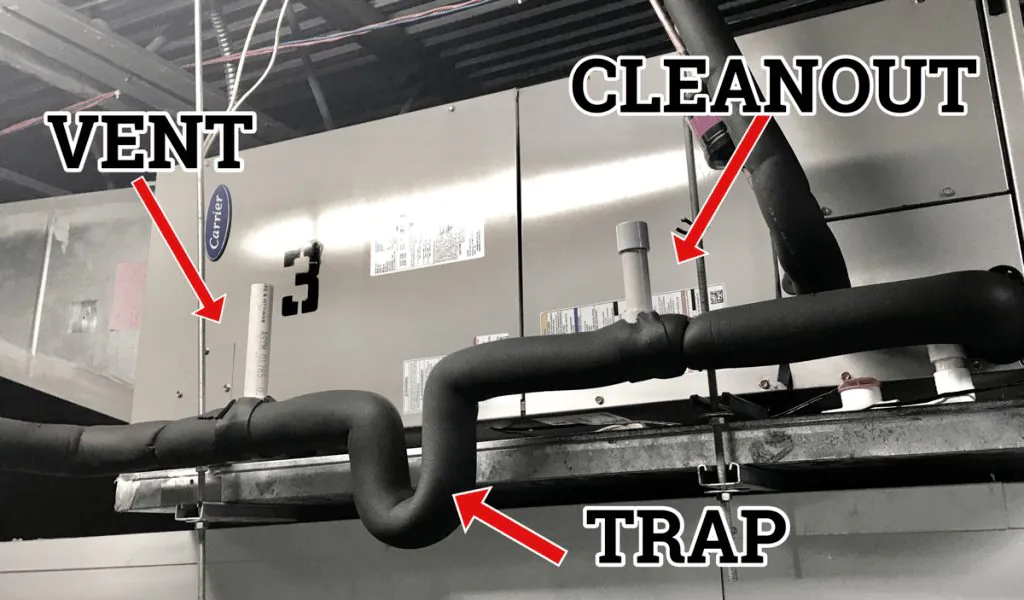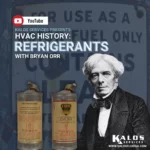We appreciate all the commercial facilities managers out there. They work very hard at keeping public spaces clean and functioning. Still, if there’s one thing that most commercial managers aren’t well equipped to look after, it’s cleaning drains. Especially in Florida, all sorts of sludge can back up the condensate drain and lead to major issues.
Commercial HVAC systems are different from residential ones. There are multiple drain possibilities, from isolated drains to common drains, as well as condensate pumps. Mike Klokus has agreed to share what he knows about drain cleaning protocols for commercial systems. Mike Klokus is the Division Manager for Light Commercial HVAC/R operations at Kalos Services.
Table of Contents
Drains: a familiar acquaintance
Most of Kalos’s commercial HVAC service calls have to do with drain buildup. The actual number of calls hovers around 40%.
Florida is notorious for all sorts of drain issues. Our cooling season lasts longer than most other regions of the country. When our systems run more intensely more often, we have more opportunities for sludge to build up. We also have “drain snot,” or a slimy white bacterial buildup that accumulates very quickly.
Commercial drains are quite different from residential ones. Most at-home cleaning solutions (like vinegar) don’t work on commercial drains. Commercial facilities managers can’t do much to stop drain buildup on their own, so they must call an HVAC technician to help clean their drains.
Buildup causes and effects
The environment is mainly responsible for drain buildup. Unfortunately, there is very little that managers can do to stop it.
As said previously, Florida is one of the worst states for drain buildup. Sludge accumulates whenever your HVAC system runs, so even normal functioning results in dirty drain buildup. Bacteria or algae can accumulate all along the drain’s sides, which impedes the flow of condensate. Many drain lines run outside, so dirt and outdoor debris may also cause buildup near the drain outlet.
One of the worst things that we see is bacterial zoogloea buildup. We’ve given it several nasty names, but we commonly call it “drain snot.” It’s a bacterial buildup that accumulates extremely quickly and looks like a white or clear goo. It only takes a couple of months before it can completely back up your drain.
The buildup causes a condensate backup. When the condensate backs up, it leaks. Leaks may damage your unit and cause severe property damage. In the case of storage unit A/C systems, all of the renters’ property will be at risk if a drain line backs up and floods.
Sludge buildup isn’t just limited to the drain line, either. The drain pan can also get filthy. Even a quarter-inch of grime can form a dam that prevents fluids from passing through. The entire drain system must be inspected and cleaned thoroughly.
Cleaning drains measures
These are just a few of the troubleshooting methods we use to control and clear out drain buildup.
One of the most basic features that can save you a lot of heartache is a float switch. When the drain backs up and activates the float switch, your unit will stop working. That way, you’ll hopefully call an HVAC technician to address the issue without ruining any property. Be careful, as not all units have a float switch. If a unit doesn’t have a float switch, then flooding can occur.
We use a wide range of methods to clean drains. We prefer using high-pressure water whenever possible. We also use shop vacuums, compressed air, and (infrequently) chemicals. We make sure that we use the safest, most appropriate methods for the job. When we use chemicals, we make sure that they’re sewer-safe or the drain outlet is away from property and gardens.
In the case of bacterial zoogloea buildup, we can put copper in the drain pan. Copper has ions that kill bacteria and fungi. These ions also deactivate viruses. Bacterial zoogloea has become an increasingly common nuisance since the introduction of aluminum coils. Aluminum doesn’t affect the zoogloea, so we use copper to provide a natural solution.
How to save money on cleaning drains
The best thing you can do to save money on drain cleaning is to schedule PMs at least twice a year. We recommend scheduling PMs during the spring and fall.
Preventative maintenance is a lot less expensive than other service calls. At Kalos, drain cleanings during PMs will cost you a lot less than a service call, especially weekend service calls.
There is no easy way to clean commercial HVAC drains without a technician’s help. Unlike residential units, most home remedies are not practical on commercial systems. Still, knowledge is power. If commercial facilities managers understand the importance of drain cleaning, they can stay on top of preventative maintenance and save themselves a lot of money and heartache.






